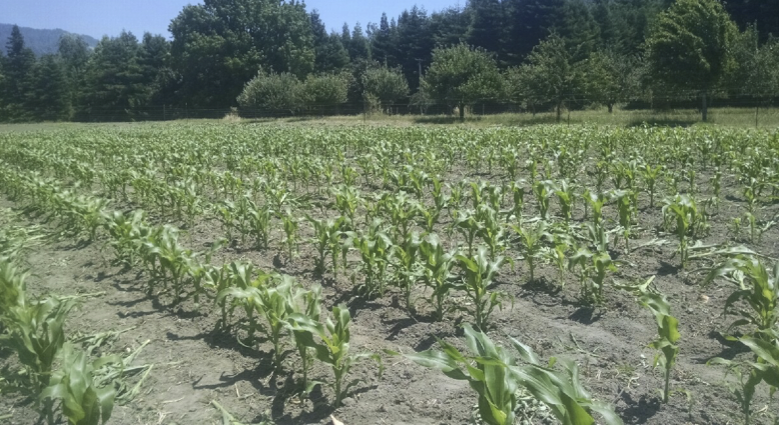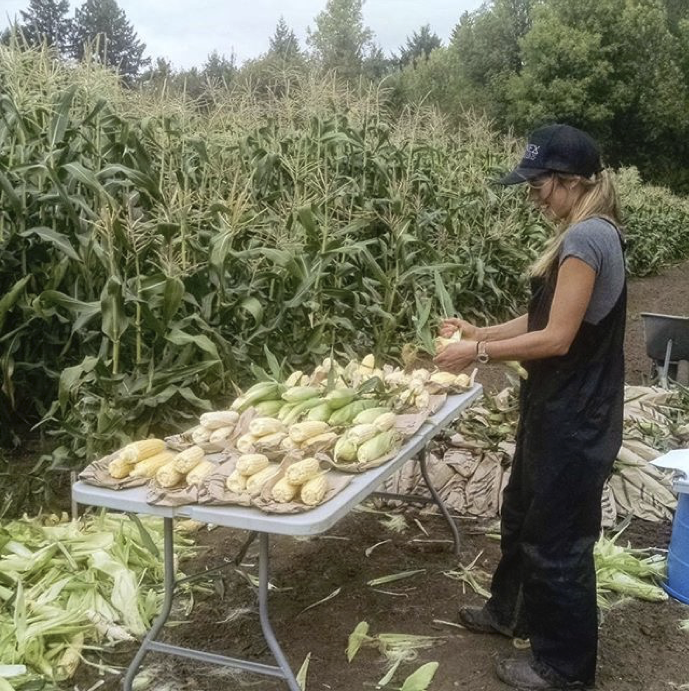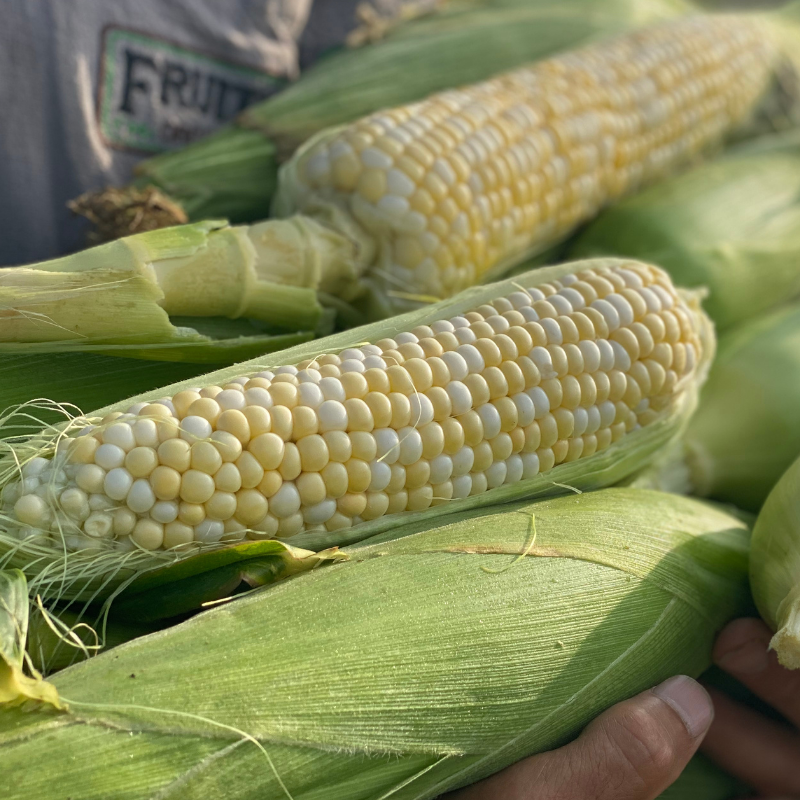Jul 9, 2021Sweet corn lessons on breeding for organic systems
Organic agriculture has been growing for decades, yet relatively few varieties have been bred for organic production. And that is a problem. As studies have shown, varieties bred conventionally often do not perform as well for organic producers as organically bred ones.
One reason why is that the breeding goals are different between systems, with organic prioritizing traits like weed competitiveness, nutrient uptake, disease and pest resistance, and tolerance to mechanical weed control. In OSA’s surveys of organic producers for our State of Organic Seed project, a significant majority of producers indicate that varieties bred for organic are important for organic agriculture. But how are these new varieties developed?
Many of the organically adapted varieties available today were bred by organic farmers, seed growers, and seed companies. A number of public university breeding programs have also worked to develop organic varieties. However, much more work is needed and funding for it is limited. As part of the NOVIC project, supported by USDA Organic Research and Education Initiative, Organic Seed Alliance and our partners have been researching how to efficiently breed for organic systems, using sweet corn as a model crop to optimize breeding trial design and coordination across locations, and to identify the best ways to make and test new crosses.
What We Learned
We grew our sweet corn trials in six locations for two years. These locations were in Oregon, California, and Wisconsin, and while they were all organic, they ranged in soil type, fertility, and irrigation regime. Growing in so many environments helped us find which varieties could grow well regardless of the environment. But it’s not realistic to grow so many trials on a regular basis, so we wanted to see which characteristics of a variety are stable everywhere. In other words, can some traits be measured in just one location? For our sweet corn, we found that relative maturity and flavor were very stable across all the trials.

Our sweet corn trials were over a half-acre, with 320 plots in each trial. When growing large breeding trials like these, scattering “check” varieties throughout the trial field allowed us to better account for varying soil conditions and find the best varieties. A traditional trial will grow multiple blocks with every experimental variety grown in each block. Sometimes, the trials are so big that the distance between the varieties in each block is too great to allow for meaningful comparisons. By augmenting the trial design so that one or more varieties are planted more frequently in each of those blocks, we could see if differences in field quality were affecting the plants.

In a cross-pollinated crop like sweet corn, public breeding programs develop inbred parents to cross to make F1 hybrids. How can we screen through those inbreds to see which might make good parents for new organically adapted hybrids or open-pollinated varieties? The possible combinations are too numerous to directly test them all. What we did in our project was use a traditional method of crossing the inbreds called a North Carolina Design II, where each inbred made five hybrids.
By growing the hybrids and their inbred parents in our trials, we could make some predictions about the performance of possible crosses we didn’t make. This let us take our trial of 140 varieties and predict the performances of hundreds more potential hybrids and millions more potential open-pollinated varieties. At the end of the study, we grew some of those new hybrids and open-pollinated varieties to see if our predictions were good, and they held up very well for most traits. Tip fill – which measures if varieties make kernels all the way to the end of the ear – was one notably hard-to-predict exception.

The goal of all this work was to help breeders develop methods to efficiently breed for organic systems. While every crop is different, the approaches that we took in our study could be a good template to follow for setting up or expanding an organic breeding program. See more details on the studies, the methods and the results in these three open-access papers in the journal Crop Science:
- Inbred and hybrid sweet corn genotype performance in diverse organic environments
- Classical and genomic prediction of hybrid sweet corn performance in organic environments
- Classical and genomic prediction of synthetic open pollinated sweet corn performance in organic environments
‘Honey Badger’ sweet corn
In doing this study, we identified some promising high-quality organically-adapted sweet corn varieties. One of the open-pollinated varieties that was developed and tested in this project is now being offered by Fruition Seeds as ‘Honey Badger.’ It is a compact, early-maturing sugary enhancer type sweet corn with very good flavor. It is open-pollinated and patent-free, so anyone can save their own seed and adapt it to their farm and region.
This work was supported by the USDA-NIFA Organic Research and Education Initiative as part of the NOVIC project.
Photo at top: ‘Honey Badger’ sweet corn. Photo: Courtesy of Fruition Seeds.

















